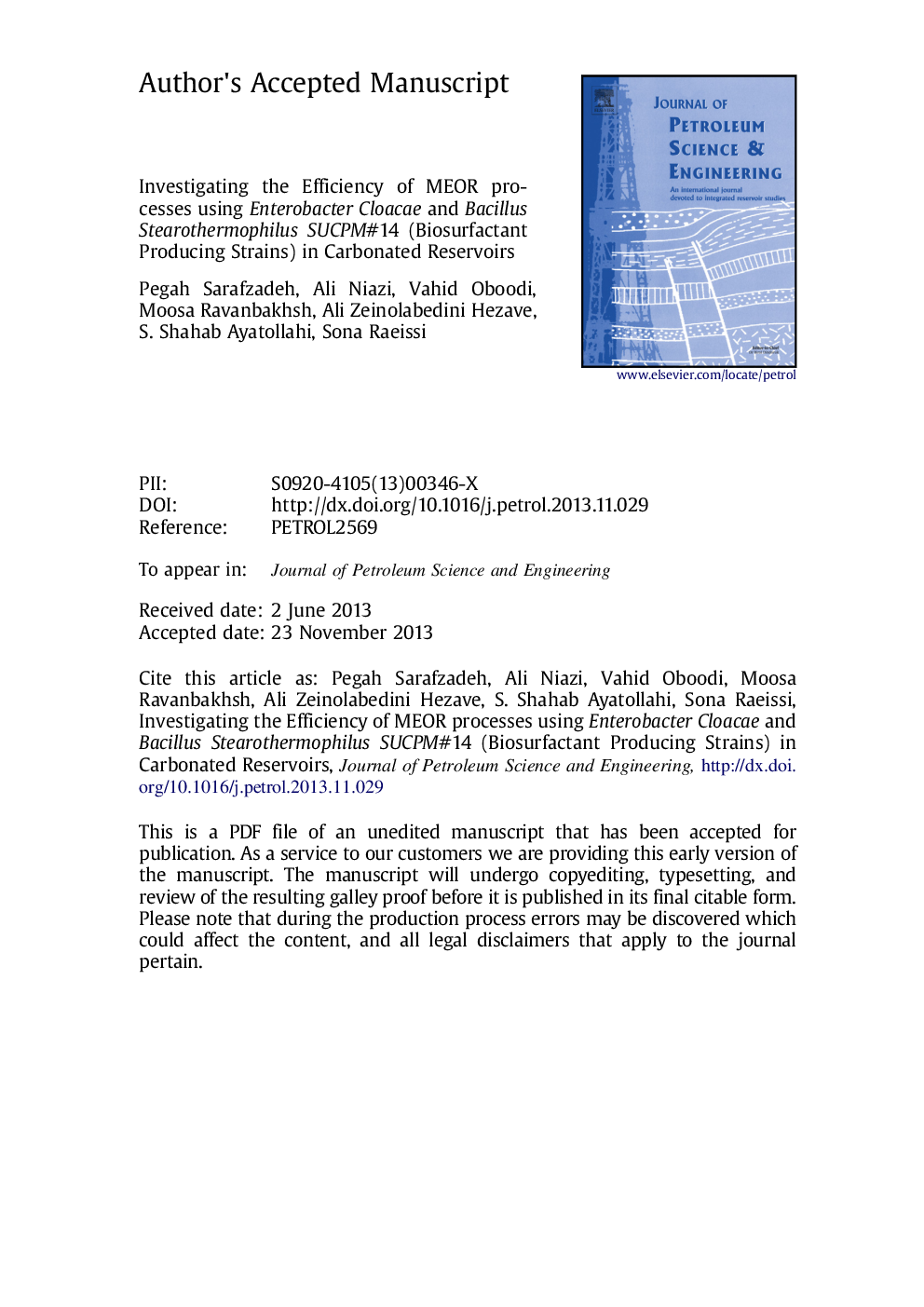| Article ID | Journal | Published Year | Pages | File Type |
|---|---|---|---|---|
| 1755163 | Journal of Petroleum Science and Engineering | 2014 | 35 Pages |
Abstract
Microbial enhanced oil recovery (MEOR) process is divided into two main categories, namely in-situ and ex-situ techniques. It utilizes reservoir microorganisms or specially selected bacteria to use their metabolites for more oil recovery from depleted oil reservoirs. In the present study, the potential of two biosurfactant-producing strains of Enterobacter cloacae and Bacillus stearothermophilus SUCPM#14 were investigated on tertiary oil recovery efficiency in carbonated cores using different designed injection protocols. The required operational time, process cost and proper selection of bacterial formulation during the MEOR process were the main objectives of this study. The results of interfacial tension (IFT) measurements demonstrated the capability of E. cloacae to reduce the water/crude oil IFT from 30 to 2.7Â mN/m after 24Â h cultivation, while B. stearothermophilus SUCPM#14 was able to slightly reduce the IFT from 30 to 15Â mN/m in the same period of time. The core flooding tests showed different bacterial formulations using various injection patterns, leading to different oil recovery efficiencies. Besides, the results showed that the required operational time as well as the cost of the process directly affects the design of the MEOR process for a selected reservoir. Based on the performed tests, E. cloacae in most of the MEOR scenarios leads to significant tertiary oil recovery efficiencies. Considering the economical parameters B. stearothermophilus SUCPM#14 demonstrated higher feasibility for in-situ MEOR processes compared to the ex-situ type. The proper design of injection protocols and appropriate selection of bacterial formulation result in considerable amounts of tertiary oil recovery.
Related Topics
Physical Sciences and Engineering
Earth and Planetary Sciences
Economic Geology
Authors
Pegah Sarafzadeh, Ali Niazi, Vahid Oboodi, Moosa Ravanbakhsh, Ali Zeinolabedini Hezave, S.Shahab Ayatollahi, Sona Raeissi,
